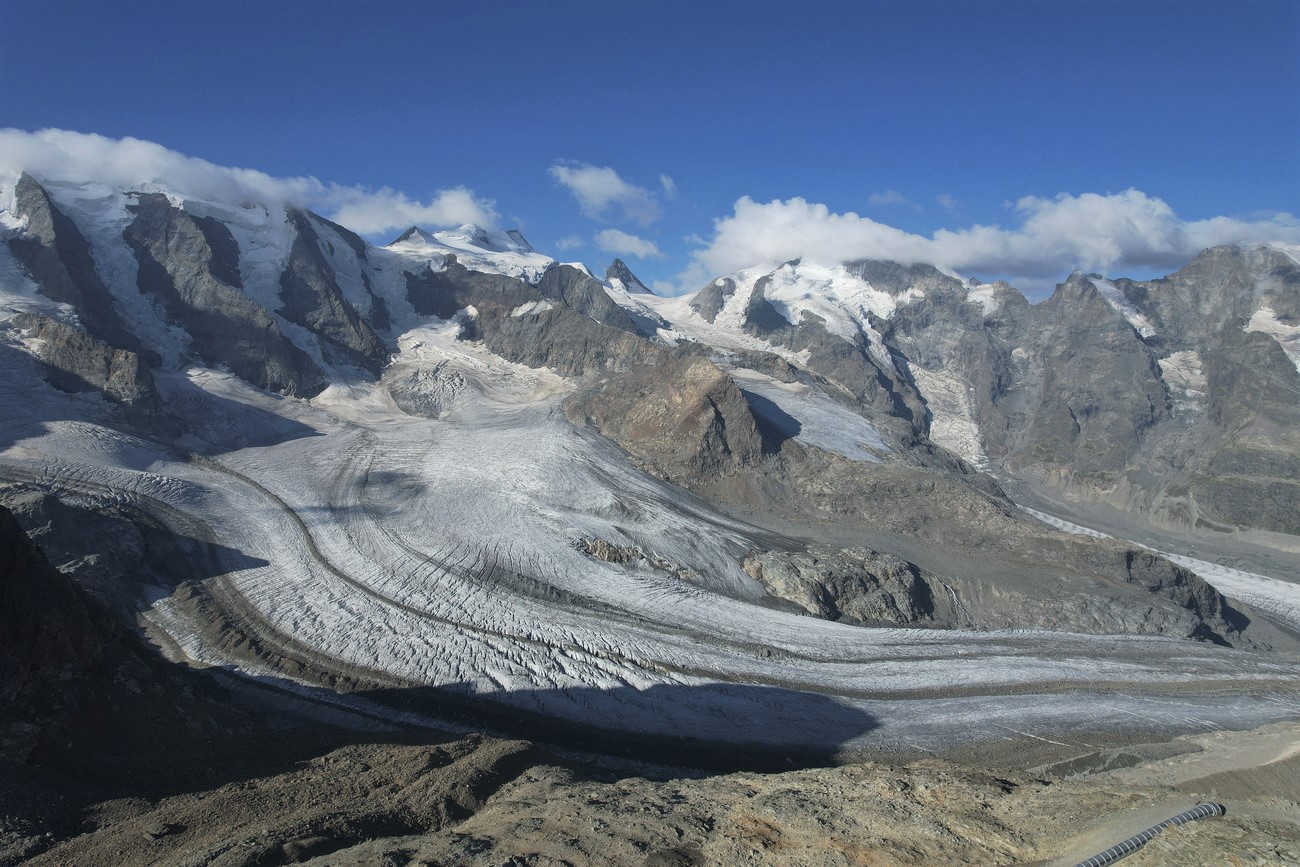
Study predicts demise of European glaciers by 2100 if no action taken

Under current climate targets, there will be practically no glaciers left in Central Europe by the end of the century, according to an international study with Swiss participation.
Looking at data from 215,547 glaciers worldwide, scientists in the study simulated various scenarios with temperature increases between 1.5°C and 4°C.
A rise of 3°C by 2100 would mean the complete disappearance of glaciers in Central Europe, they found, while a rise of 1.5°C – which would involve setting stricter climate targets –would bring about melting in the order of 60%.
Under current international goals, the temperature rise this century is expected to be 2.7°C.
Worldwide, the most optimistic scenario in the study would see glaciers lose 26% of their mass compared to 2015; in this case, ice-sheets would only survive in the high mountains of Asia, Alaska, Russia, and the Arctic and Antarctic. Sea levels would rise by 115 millimetres.

More
‘The only way to save glaciers is to stop global warming’
Natural reservoirs
Matthias Huss, a co-author of the study from the federal technology institute ETH Zurich, underlined the problems that would result from the disappearance of the fresh water contained in glaciers.
Resulting shortages will affect irrigation, drinking water, transportation of goods, and wildlife, among other things. “Even if we can no longer save the glaciers in their current state, every tenth of a degree of warming avoided counts,” said Huss.
The study was published on Thursday in the “Science” journal, and also features the contribution of researchers from the University of Fribourg and the Swiss Federal Institute for Forest, Snow and Landscape Research (WSL). It was led by David Rounce from the Carnegie Mellon University in Pittsburgh.

In compliance with the JTI standards
More: SWI swissinfo.ch certified by the Journalism Trust Initiative





























You can find an overview of ongoing debates with our journalists here . Please join us!
If you want to start a conversation about a topic raised in this article or want to report factual errors, email us at english@swissinfo.ch.